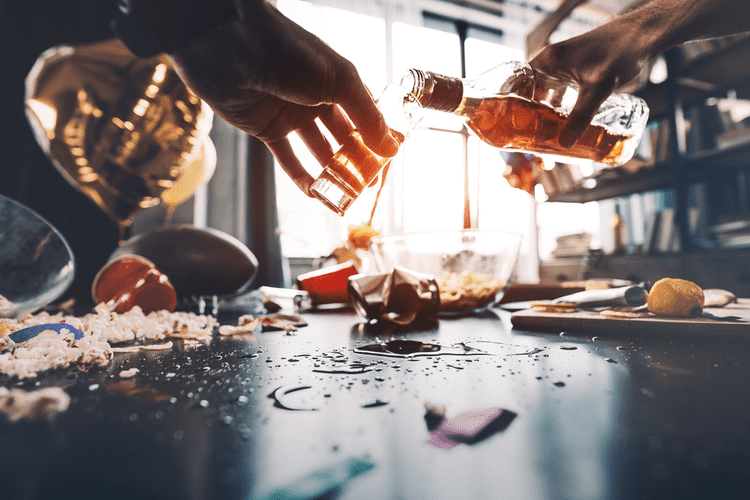The Link Between Anger and Alcoholism
For example, if you start drinking when you’re lonely and sad, you may find the alcohol makes you feel even more desolate and distressed than you did when you were sober. Researchers have studied the connection between anger and aggression for years. However, it’s about more than getting easily upset or having a short fuse when you drink alcohol. The outcomes of alcohol and anger can be hazardous, causing traumatizing situations for the inebriated person and the people around them. Interestingly, those in the control group tended to misidentify expressions as happy.

Extreme happiness, or euphoria, is another common experience during drinking. As a positive, unalarming emotion and one that others are used to seeing, however, happiness isn’t on the radar as much as anger. Underage drinking among U.S. teens has declined over the last 20 years, according to the University of Michigan’s Monitoring the Future survey. In 2023, 46% of 12th graders said they had consumed alcohol in the 12 months prior to the survey, as did 31% of 10th graders and 15% of eighth graders.
The Relationship Between Anger and Aggression
The findings were explained by emphasizing that concern for the future involves greater prefrontal cortex resources that help inhibit the excessive impact of alcohol. Specifically, it found that problematic drinkers may be more likely to attend to aggressogenic stimuli while intoxicated, and that is, they were more likely to experience certain cues as aggressive. Another study explored the relationship between Posttraumatic Stress Disorder (PTSD), alcohol use, and violence (Blakey et al., 2018).
The exact amount of alcohol that will initiate aggression is unknown and varies from person to person. At Boardwalk Recovery Center, we understand that every individual handles alcohol differently and we approach our treatment and care with that in mind. It is important to note that male participants were more aggressive in their responses than their female counterparts, but the impacts of alcohol and personality were almost interchangeable in both sexes. Women who were present-focused were still much more aggressive when drunk than women who were future-focused, just like men. Chemical changes in the brain occur with alcohol consumption that disrupts the normal regulation of feel-good chemicals and pain responses. As a person comes down from the alcohol high, he’s hit with a wave of discomfort that can lead to more alcohol use to deal with the feelings—developing a perpetuating cycle of anger and substance abuse.
What’s the Connection Between Alcohol and Depression?
In fact, at its core, it can motivate people to address problems, set boundaries, and advocate for themselves. Before we take a deeper dive into the relationship between alcohol, anger, and aggression, it’s important to understand the difference between anger and aggression. While the two share many similarities, they are two very different emotions. If you or a loved one experiences aggression or anger when drinking, it could be a sign of a larger issue. In this blog, we will discuss not only the connection between alcohol and anger but also how you can get the help you need if you are struggling. Furthermore, alcohol can make you focus too much on specific words or behaviors from other people.
As you can imagine, alcohol-related aggression can have far-reaching and severe unintended consequences. Some of these consequences may only affect the person drinking, while others can affect numerous others. Now that we touched on how exactly alcohol can impact a person’s behavior, it’s important to understand why exactly that all happens, including the neurological and psychological mechanisms at play. It’s sometimes easier for angry people to become aggressive when they’re inebriated. A slight annoyance may turn into an infuriating problem, thanks to alcohol. Typically, anger will lead to aggression unless something happens to resolve the situation.
How to Cope with Alcohol-Induced Anger
That is why drinking too much alcohol can cause adverse effects like confusion, impaired motor coordination, and inability to make decisions. In addition to the brain, alcohol also risks health as it can severely damage the liver, heart, digestive system, immune system, mood, and sleep. The terms “anger” and “aggression” are usually used interchangeably; however, there is a difference between Anger and aggression. Anger is an emotion experienced when you feel threatened and frustrated, while aggression is a behavior in which you can harm yourself, your family, and others. Alcohol can cause irrational aggression, resulting in domestic violence and psychological issues.
Anger management and alcohol treatment programs must recognize and educate participants about the relationships between alcohol and anger. It’s equally important that psychotherapists highlight this interaction both with clients who consume alcohol and those in relationships with them. Additionally, this information should also be taught in schools to expand their understanding and hopefully reduce the prevalence of alcohol-related aggression. Identifying those factors that might contribute to heightened anger when consuming alcohol is important for individuals who have anger issues and those who treat them. While psychotherapy is the primary approach for co-treatment of alcohol use and anger management, medications like mood stabilizers and those used to treat substance withdrawal may also be part of your treatment plan.
This was a massive study of 33,215 individuals with no history of active military combat. An increase in anger after trauma and the use of alcohol to cope with PTSD symptoms were stronger predictors of physically aggressive or violent acts than a lifetime diagnosis of PTSD without anger. First, certain alcohol depression and anger neurotransmitter receptors can make people feel more relaxed or sedated, which signals the release of increased levels of the chemical dopamine. With an influx of dopamine, the brain’s reward center becomes activated, making people more open to doing things that they might not do when sober.
- If you are having suicidal thoughts, contact the National Suicide Prevention Lifeline at 988 for support and assistance from a trained counselor.
- People who are the closest to the alcoholic who struggled with anger often get the most abuse.
- For example, if a person goes into a drinking experience with the expectation of alcohol helping them pick a fight with a partner later, that’s then likely to happen.
- Overall, exhibiting one or a combination of the above factors can increase your chances of becoming angry when intoxicated.
Under the influence of alcohol, those already predisposed toward anger may vent or, more seriously, direct their anger toward a target that might be experienced as less threatening than the original target. As with all co-occurring disorders, it’s important to treat anger management issues and AUD at the same time as part of a comprehensive treatment program. Clients can learn healthy stress management and coping skills to diffuse anger and other negative thoughts in group and individual therapy sessions. Emotional regulation skills and relapse prevention tools are also taught. Through behavioral therapy and counseling, a person is better able to recognize how their thoughts tie into their actions.
